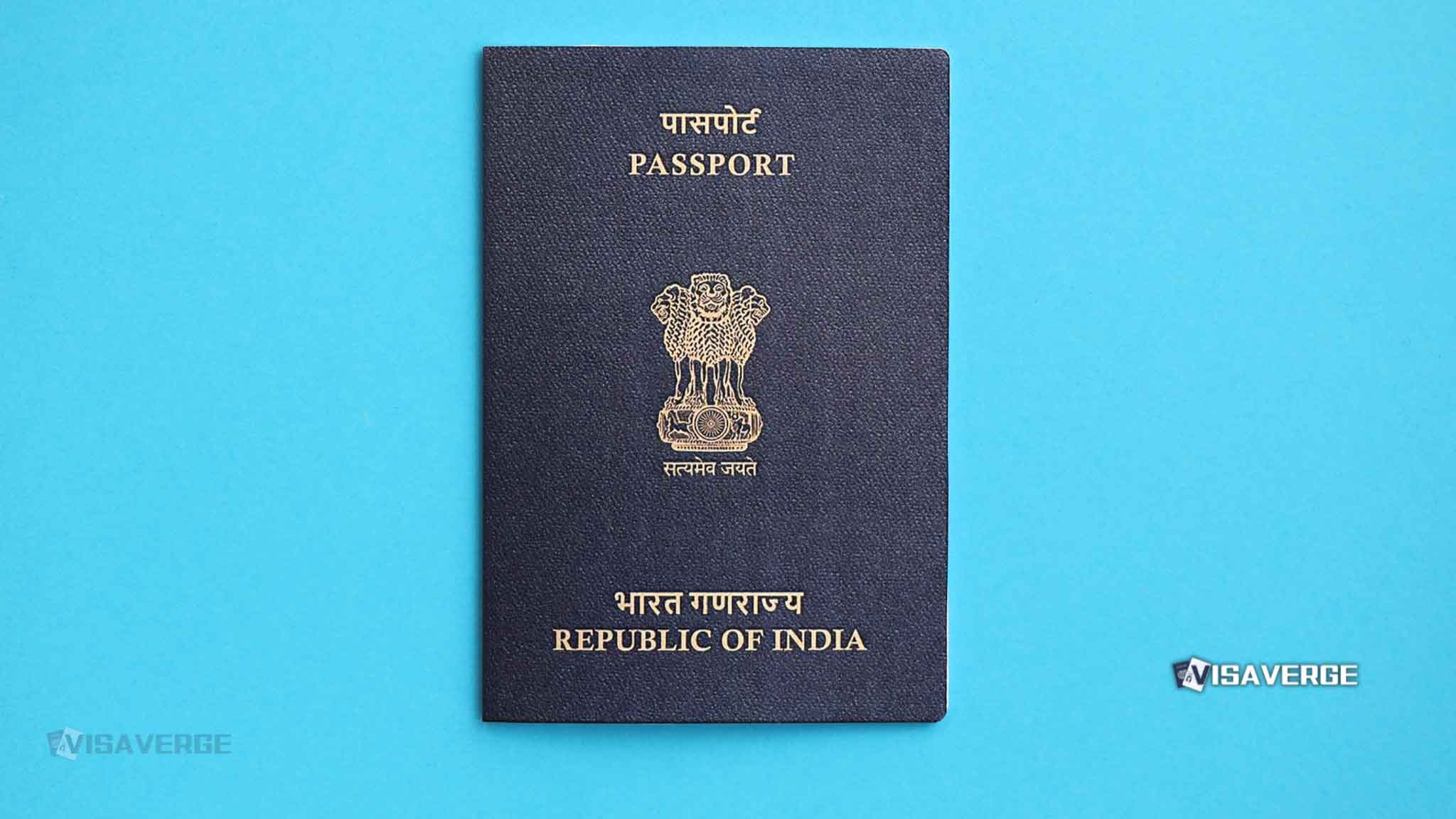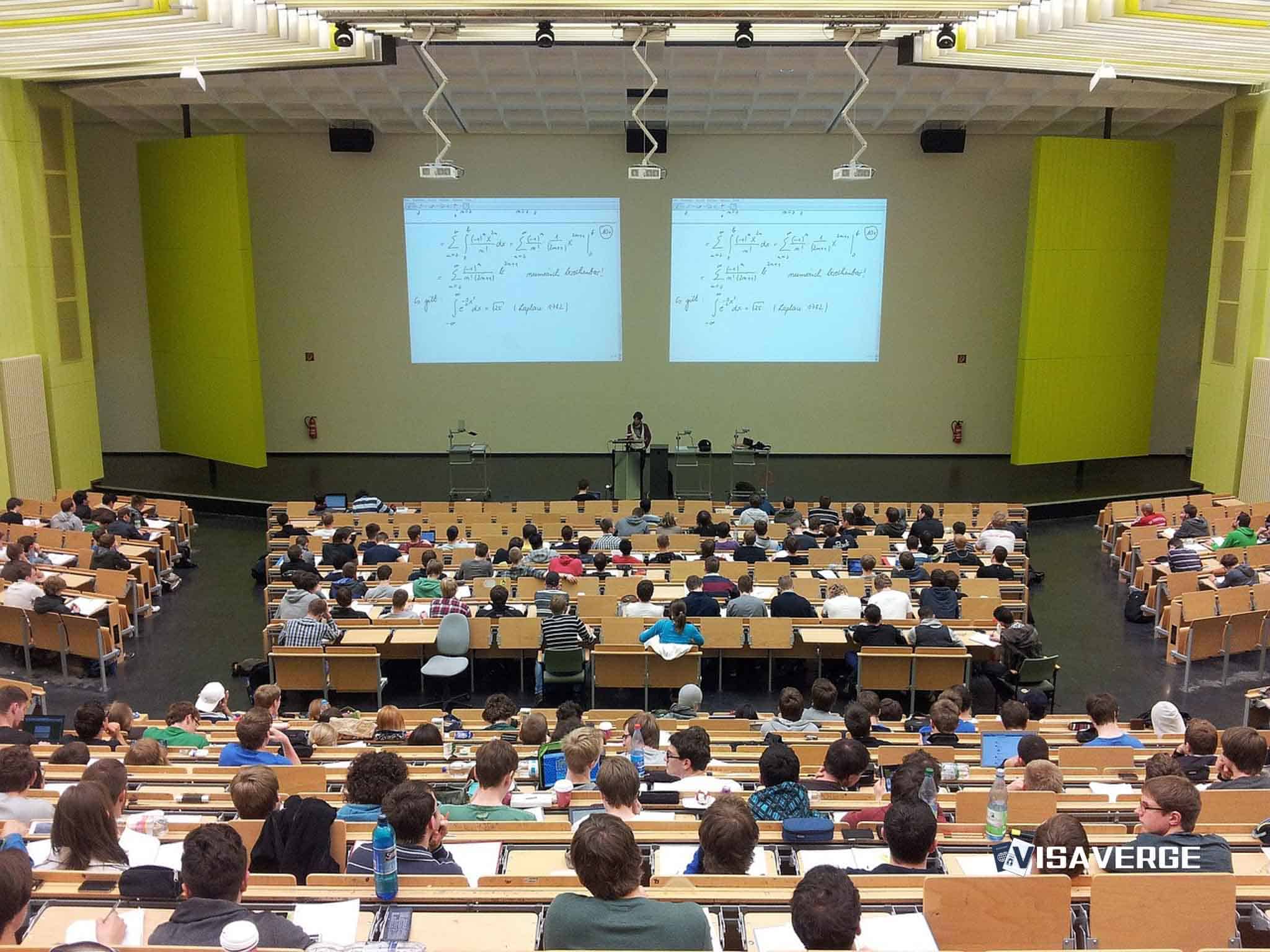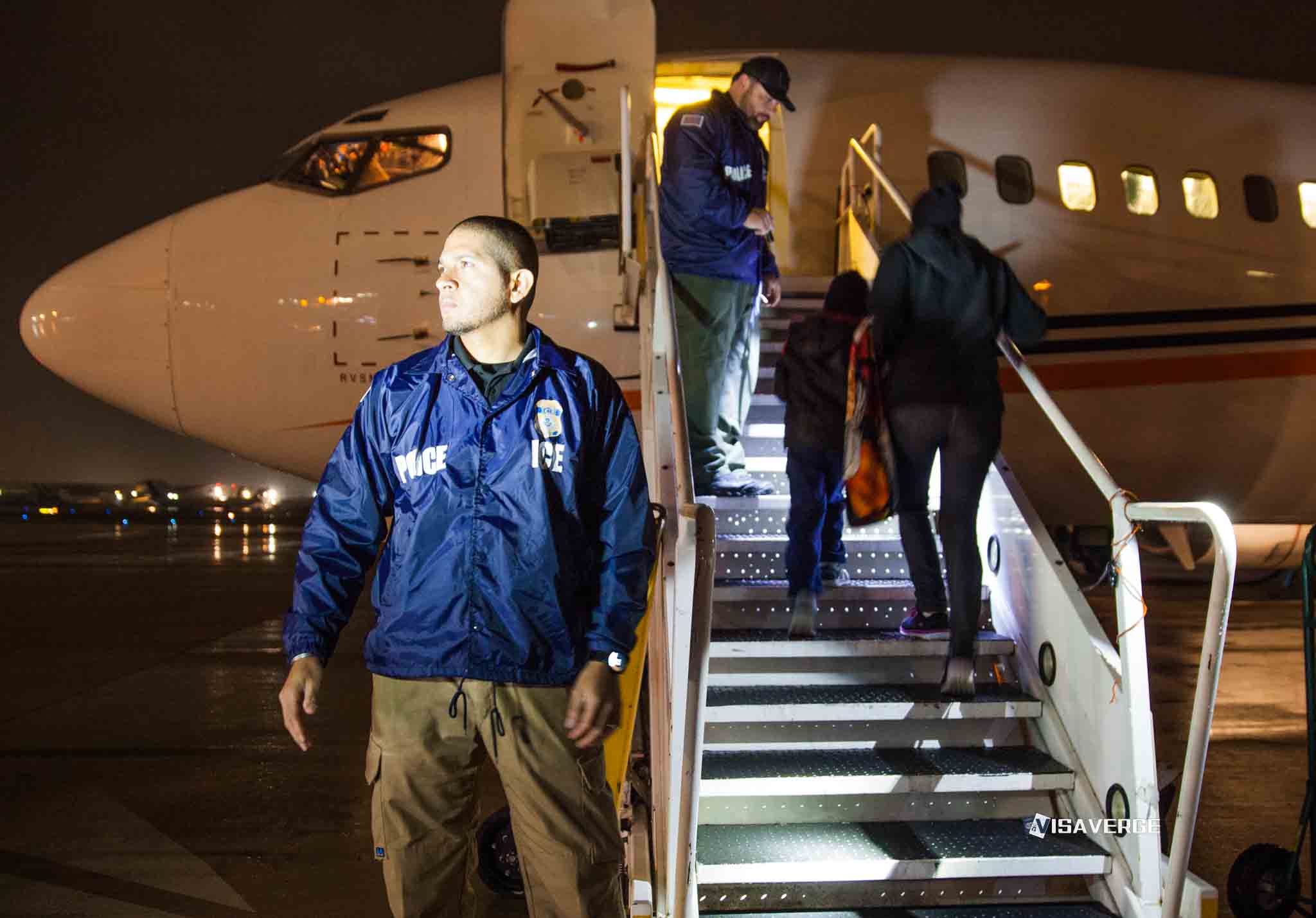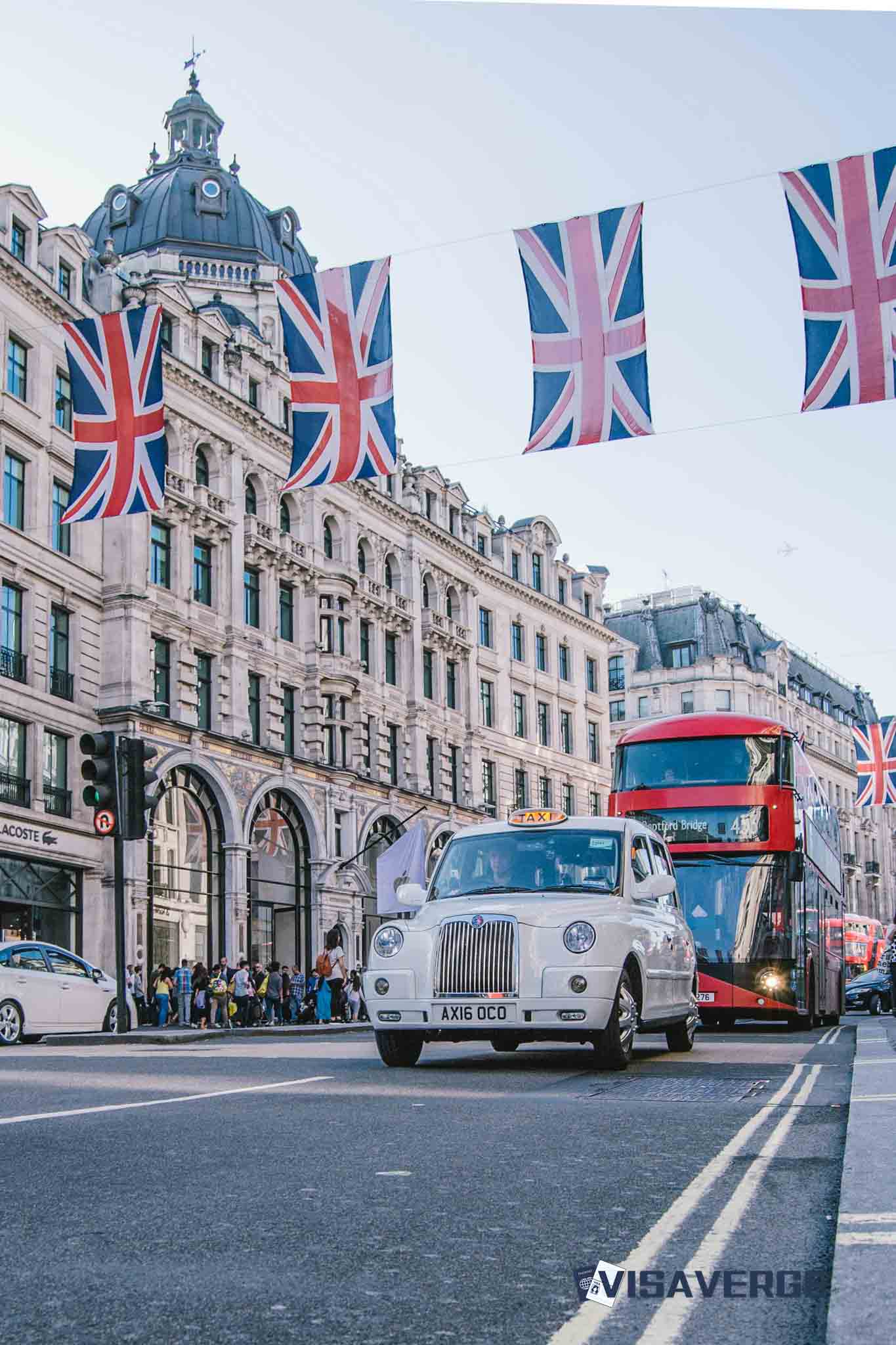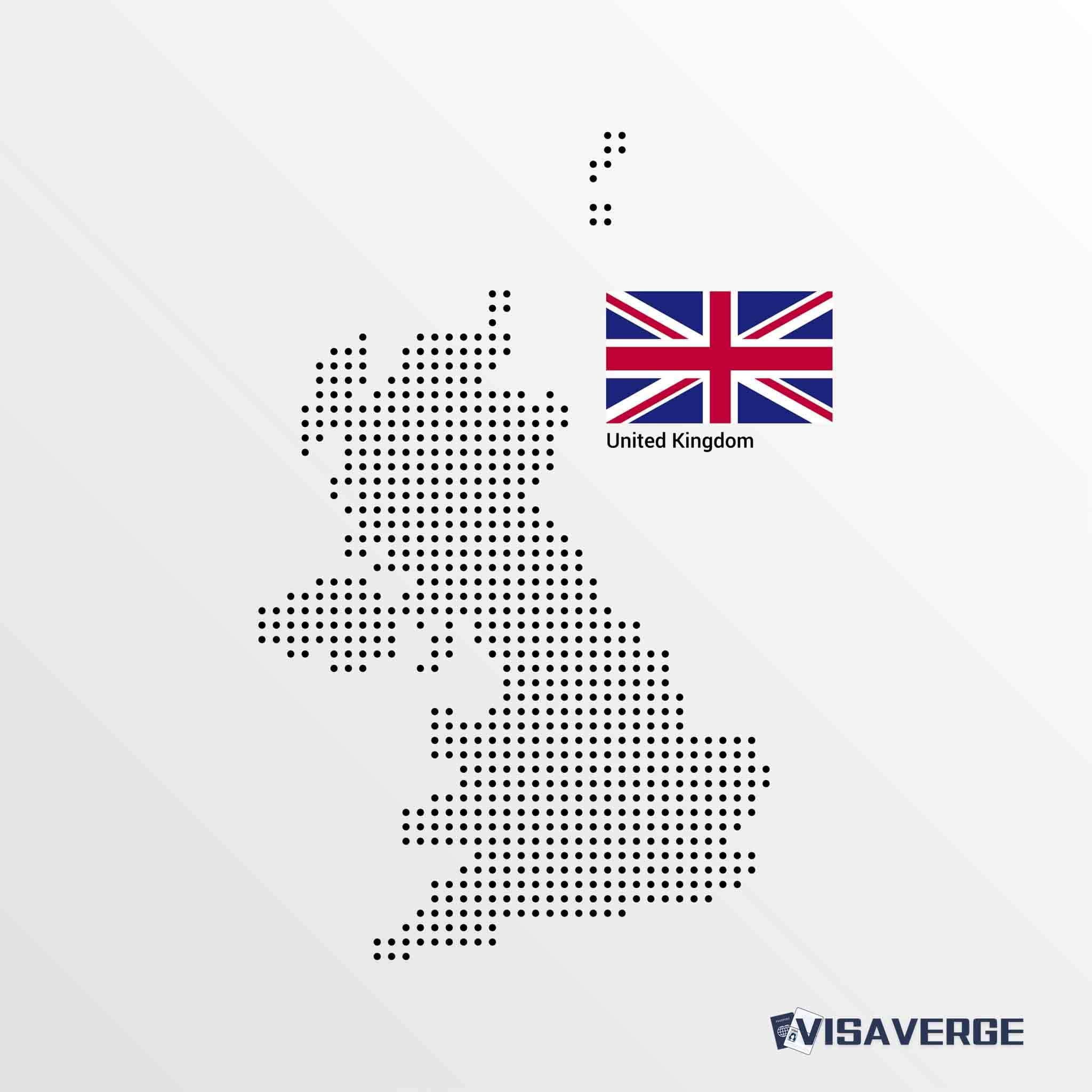Key Takeaways
• Graduate Route post-study work visa reduced from 24 to 18 months for undergraduate and Master’s graduates.
• Universities must achieve a 95% enrollment and 90% completion rate or face potential penalties.
• Higher English requirements and longer settlement waits introduced; new rules may begin October 2025, pending Parliament approval.
The United Kingdom 🇬🇧 government has announced a major update to its immigration policy, especially for international students. Under the new plan, the Graduate Route – often called the post-study work visa – will have its duration reduced from 24 months to 18 months for students who have completed undergraduate or Master’s degrees. This move is part of a broad effort to lower the number of people moving to the United Kingdom and to “restore control over the immigration system.” With this announcement, students, universities, and employers may all feel the effects, and many are already sharing strong opinions on the possible changes.
What Is the Graduate Route?
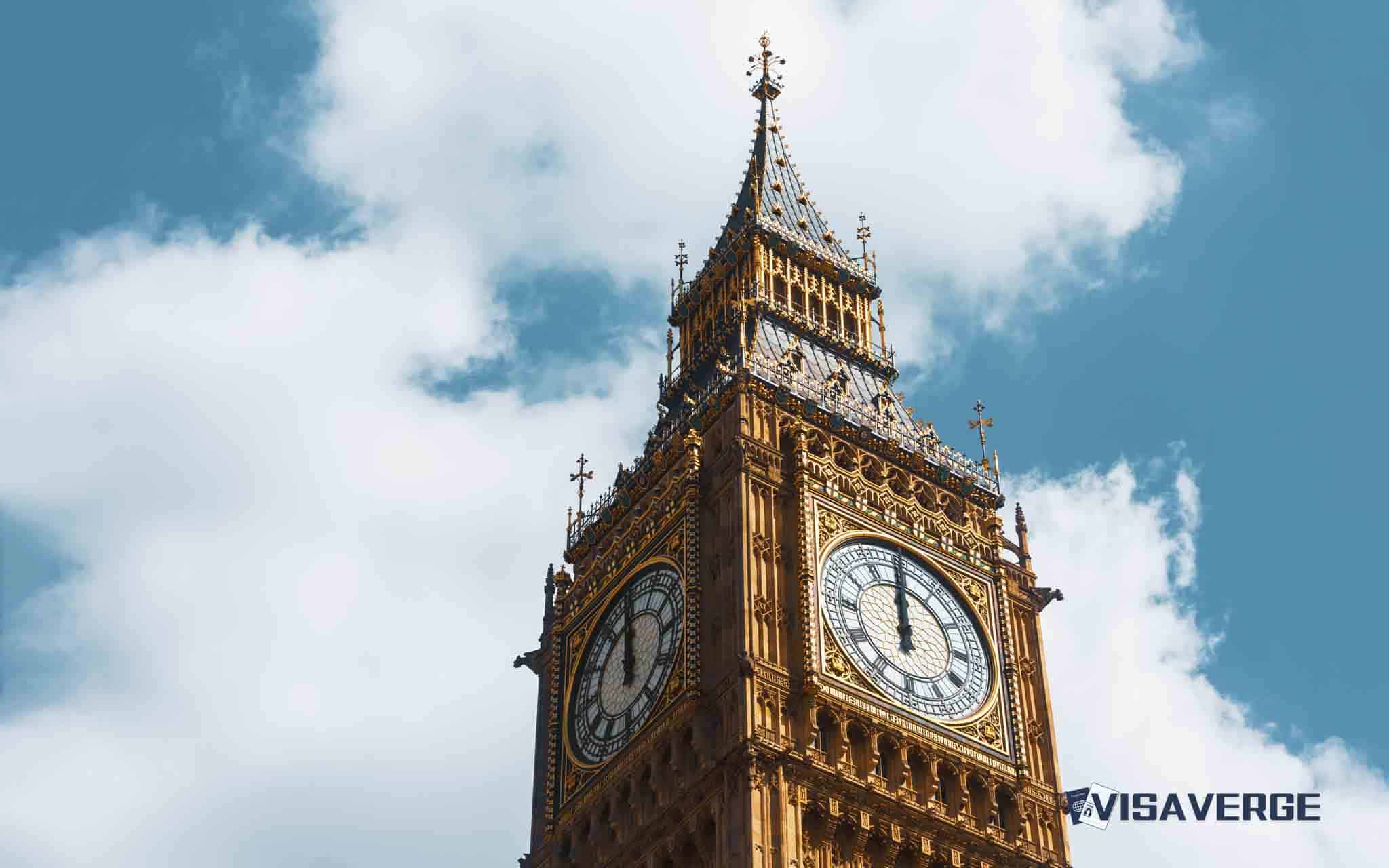
The Graduate Route is a type of visa, also known as the post-study work visa, that was first introduced in July 2021. It was designed to help international students stay in the United Kingdom 🇬🇧 after finishing their studies. Before these changes, students who had completed undergraduate and Master’s degrees could stay for up to two years to work—or to search for work—at any skill level. PhD graduates were allowed to stay for up to three years. One of the important parts of the Graduate Route is that students did not need a job offer or any sponsorship from a company to use this visa. Instead, it gave them time and space to look for the right job or valuable work experience after graduation.
What Has Changed? The New 18-Month Limit
On May 12, 2025, the government released a white paper named “Restoring Control over the Immigration System.” This document explains the new changes and the government’s wishes for the future. One of the main changes is that starting soon, the Graduate Route will let eligible students stay in the United Kingdom 🇬🇧 for only 18 months instead of 24 months after they finish their degrees. PhD graduates will keep their right to stay for three years after graduation.
It’s worth highlighting:
– Undergraduate and Master’s students: 18 months on the Graduate Route
– PhD graduates: 3 years (no change from before)
Why Make This Change?
The government says this is just one step in a bigger plan to reduce net migration. Net migration means the number of people coming into the United Kingdom 🇬🇧 minus the number who leave. Over the last few years, the net migration numbers have risen, and there has been a focus on how student and graduate visas add to this increase.
The white paper suggests that by tightening rules, the country can better control who moves, stays, and works after graduation. For the government, the plan hopes to show they can make clear decisions about borders and the types of people who are able to join the workforce.
Tighter Rules for Universities and New Policies
The white paper doesn’t just talk about the Graduate Route. It includes many changes to the United Kingdom 🇬🇧 immigration system that could affect students, schools, and workers. Here are some of the main points:
- Stricter university rules: Institutions that accept international students need to meet strong targets. They must reach a 95% course enrollment rate, which means almost all students must actually take up their places. They also need a 90% course completion rate, so most students must finish their studies.
- Red-Amber-Green (RAG) monitoring: Schools will be rated using a red, amber, or green system. This will check how well they are following the rules.
- Possible money levy: The government has proposed a new fee (called a levy) on any money universities get from international student fees. The government says the money could be used to help train more local workers.
- Higher English requirements for workers: Skilled Workers, those who want to stay and work in the United Kingdom 🇬🇧 after study, must now show a higher level of English (from level B1 to B2 on an international scale).
- Longer wait to settle: People hoping to move to the United Kingdom 🇬🇧 permanently (called settlement) will now need to wait 10 years instead of 5.
- New English rules for families: Dependants (family members) of research students will also have new English language rules to follow.
When Do These Changes Start?
Right now, these proposals are not yet law. They have been announced as part of the government’s plan, but the United Kingdom 🇬🇧 Parliament still needs to approve them. The government did not say exactly when the new rules will start. Some reports suggest changes could begin as soon as October 2025, but this is not confirmed.
Many education groups and student organizations, including the National Indian Students and Alumni Union (NISAU) UK, are asking for answers. They want to know if the changes will affect new students arriving in September 2025 or later, so students can plan their futures with confidence.
How Does This Affect International Students?
For international students, especially those from India 🇮🇳, these changes are a big deal. India 🇮🇳 sends more students to the United Kingdom 🇬🇧 for higher education than any other country, and most of them use the Graduate Route to work after studying.
Student groups worry that the shorter post-study work visa time will mean less chance for graduates to build a strong career after finishing their studies. Schools and student unions say this could make the United Kingdom 🇬🇧 less attractive than other places like Canada 🇨🇦 or Australia 🇦🇺, which offer longer or easier pathways for graduates to stay and work.
Before the change, having a full 2 years to look for work gave graduates more time to find jobs that match their skills or interests. With only 18 months, students will have less time to find a job, get experience, or apply for a more permanent work visa.
The University and College Union (UKCISA) commented that the Government’s choice “ultimately undermines the Graduate route as a choice and makes it very difficult for the UK sector to offer it as a meaningful post-study option.” Critics say that even though 18 months is still longer than some countries, the change might make the United Kingdom 🇬🇧 seem less welcoming.
Who Will Feel the Impact?
- Students and Graduates: If you are thinking about studying in the United Kingdom 🇬🇧, you might be worried about your options after graduation. You’ll have to plan your career path early, and act quickly when job hunting.
- Universities: Schools want international students, as they bring different ideas, cultures, and tuition income. Tighter rules and less attractive visas could mean fewer students apply, which might affect school budgets and the wider economy.
-
Employers: Companies in the United Kingdom 🇬🇧 have often counted on bright, skilled international graduates to fill important jobs—especially in areas like engineering, science, healthcare, and business. Shorter visa periods might mean fewer graduates can stay, which could make hiring harder.
-
The United Kingdom’s International Image: The United Kingdom 🇬🇧 has always wanted to be seen as a leader for higher education. If students worry they cannot stay long enough to build a career, they might pick other countries like Canada 🇨🇦, Australia 🇦🇺, or those in the EU, hurting the United Kingdom 🇬🇧’s place in the global student market.
What About PhD Graduates?
One thing that stays the same is that PhD graduates will still be able to stay in the United Kingdom 🇬🇧 for three years after graduation under the Graduate Route. This is meant to help keep highly skilled researchers who can add to the country’s science and research sectors.
Why Do Some People Support the Changes?
Supporters of the change argue that the United Kingdom 🇬🇧 needs better control over who enters and stays in the country. They say that if graduates cannot find meaningful work quickly, they may end up in jobs that do not use their skills, or they may stay without real job offers. For these critics, making the Graduate Route shorter could encourage graduates to make faster decisions about their futures and make it easier to manage migration numbers.
Why Do Some People Disagree?
Others say the cut sends the wrong message to students who want to bring their knowledge and ideas to the United Kingdom 🇬🇧. Many believe the country could lose out on the best and brightest, and that it might hurt the United Kingdom 🇬🇧 long term in science, business, and culture. There is also the risk that other countries, which offer better options, will become more popular choices for global students.
Looking Forward: What Should Students Do?
If you are thinking about studying in the United Kingdom 🇬🇧 or already have a place, stay updated. The rules are not finalized yet, so keep an eye on official announcements. If you want to get the latest information or check specific visa rules, you can always visit official sources, such as the UK government’s guidance on the Graduate Route.
Be sure to work closely with your school’s international advisors to plan your time, your visa application, and your post-study plans carefully. This will help you make the most of the opportunities that are still available.
How Will This Affect Other Immigration Rules?
The white paper includes many other changes that might make it harder not just for students, but for workers and families who want to make the United Kingdom 🇬🇧 their home. For example:
- The English language requirement for Skilled Worker visas will now be set at a higher level.
- The standard period before someone can settle in the United Kingdom 🇬🇧 is doubling from five to ten years.
- Dependants of research students must now meet new English language standards.
- Schools will face much stricter checks to make sure their students are attending and finishing their courses.
These wider changes, according to the government, are aimed at making sure only the most committed and qualified applicants stay in the United Kingdom 🇬🇧 long-term.
Reactions from the Education Sector
Groups like UKCISA and the NISAU UK have voiced concern that these changes come at a time of high global competition for international students. They argue that it is important for the United Kingdom 🇬🇧 to remain welcoming and to keep strong educational links with countries around the world. They warn the changes could put off many top students, and in the long run, damage the country’s strong international education sector.
On the other hand, the government feels these changes are necessary to make sure migration is well managed and to help the United Kingdom 🇬🇧 keep its promises about border control.
Comparing the United Kingdom to Other Countries
Before these changes, the United Kingdom 🇬🇧 had a post-study work visa period that matched or was even better than many other countries. Canada 🇨🇦, Australia 🇦🇺, and many EU countries all offer some type of post-study work option, but the time frames and requirements vary. Many international students choose a country based on how easy it is to stay and work after finishing their studies.
If the United Kingdom 🇬🇧 becomes less attractive, students may select places with longer post-study choices, easier rules for moving from a student visa to a work visa, or greater chances for permanent residence.
Conclusion: What Should You Know Now?
The recent move to reduce the Graduate Route post-study work visa from 24 months to 18 months for undergraduate and Master’s graduates in the United Kingdom 🇬🇧 is part of a wider plan to lower migration numbers and tighten rules for schools and job seekers. While PhD graduates will still be allowed to stay for three years, others must now plan faster for jobs and career changes after finishing their degrees.
The full impact of these changes will depend not just on the exact start date, but also on how schools, companies, and students adjust. If you are planning to study in the United Kingdom 🇬🇧, pay close attention to updates from official channels and speak with your school’s advisors to understand your rights and opportunities.
As reported by VisaVerge.com, this topic is creating a lot of debate between those who see the need to control migration and those who want to keep the United Kingdom 🇬🇧 an open and attractive place for the world’s top students. For the most reliable and up-to-date information on the Graduate Route, post-study work visa, and other changes in United Kingdom 🇬🇧 immigration rules, always check guidance from the official government website before making any decisions about your studies or future plans.
Learn Today
Graduate Route → A UK visa allowing international graduates to stay and work after their degree without needing employer sponsorship.
Net Migration → The difference between the number of people entering and leaving a country over a specific period.
Post-study Work Visa → A visa that allows graduates to remain in the UK to gain work experience after completing their studies.
Red-Amber-Green (RAG) Monitoring → A system rating universities on compliance with immigration and enrollment standards using red, amber, or green labels.
Skilled Worker Visa → A visa for individuals who have a job offer in the UK requiring a certain skill level and English proficiency.
This Article in a Nutshell
The United Kingdom has announced a significant reduction in its Graduate Route post-study work visa: now only 18 months for undergraduates and Master’s graduates instead of 24. These changes aim to lower net migration and come with stricter university requirements, higher English standards, and affect future international students considerably.
— By VisaVerge.com
Read more:
• Ukrainian Aviation Companies Exposed in Russian Sanctions Probe
• UK immigration rules to require 10 years for settlement and citizenship
• UK Home Office proposes 10-year wait for Indefinite Leave to Remain
• UK faces legal battle over deportation of asylum seekers to Bulgaria
• RVL Aviation and ZeroAvia launch UK’s first hydrogen-electric cargo flights






